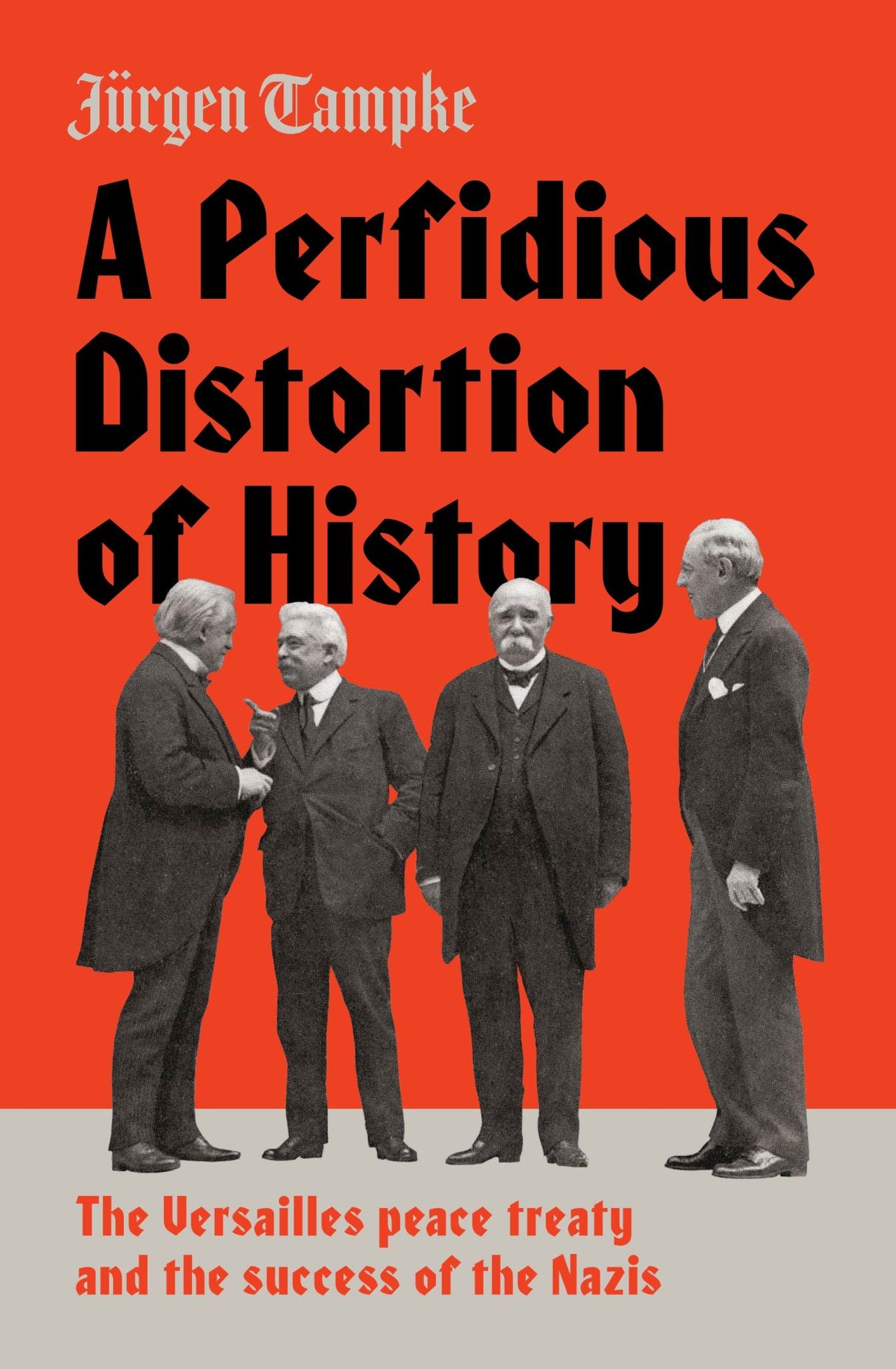SKU:
PR549125
A Perfidious Distortion of History: the Versailles Peace Treaty and the success
$64.95
Unit price
/
Unavailable
Discover an insightful examination of the Versailles Peace Treaty in 'A Perfidious Distortion of History: The Versailles Peace Treaty and Its Success'. This scholarly work delves deep into the complexities surrounding the Treaty that concluded World War I, challenging the prevailing narratives that paint the agreement as merely punitive. Historian Jurgen Tampke presents a compelling argument that reveals how the Treaty was not as harsh as commonly believed and highlights Germany's evasion of responsibility for the war. This critical analysis helps readers understand the socio-political framework of the Weimar Republic and the subsequent rise of extremism, offering a fresh perspective that bridges history and politics. With its 328-page exploration of this pivotal moment, this book is perfect for students, educators, and history enthusiasts eager to grasp the nuanced realities of post-war Germany. Available in brand new condition, this essential read is published by Scribe Publications and is bound in durable paper over boards. Enjoy FREE shipping on this significant historical text from Smartfox NZ, and enrich your knowledge of how the Versailles Peace Treaty influenced the course of modern history. Join the conversation today and uncover the truth behind this legendary agreement.
Condition: BRAND NEW
ISBN: 9781925321944
Format: Paper over boards
Year: 2017
Publisher: Scribe Publications
Pages: 328
Description:
The Versailles Peace Treaty, the pact that ended World War I between the German empire and the Allies, has not enjoyed a high reputation among politicians, historians, and opinion-makers since its signing in June 1919. Conventional wisdom has it that, guided by motives of punishment and revenge, and based on the untenable claim that Germany had caused the war, the treaty's chief instigators, United States president Woodrow Wilson, British prime minister David Lloyd George and French prime minister Georges Clemenceau, imposed a Carthaginian peace upon the defeated enemy. Loss of vital industrial and agricultural regions and the imposition of massive reparation payments crippled the economy of the Weimar Republic. This in turn constantly destabilised the Republic's political life. Thus the gentle seeds of democracy that are said to have been sown in the aftermath of the Great War were not allowed to flourish. Instead, the fourteen years of the Republic were marked by perpetual confrontations, setbacks, and unsurmountable difficulties - all linked to the harshness of the Versailles Peace Treaty - which in the end drove the German people into the arms of Adolf Hitler, whose evil potential, of course, no one could foresee.
In this authoritative and well-written book, Jurgen Tampke argues that Germany got away with its responsibility for World War I and its behaviour during it; that the treaty was nowhere near as punitive as has been claimed; that the German hyper-inflation of the 1920s was at least partly deliberate policy to minimise the cost of paying reparations; and that WWII was a continuation of Germany's longstanding war aims (which went back beyond WWI to the late nineteenth century). Woodrow Wilson and the US's role
This product has FREE shipping however combined shipping for other products is not available with this item. Please allow up to 10 days for shipping.
Condition: BRAND NEW
ISBN: 9781925321944
Format: Paper over boards
Year: 2017
Publisher: Scribe Publications
Pages: 328
Description:
The Versailles Peace Treaty, the pact that ended World War I between the German empire and the Allies, has not enjoyed a high reputation among politicians, historians, and opinion-makers since its signing in June 1919. Conventional wisdom has it that, guided by motives of punishment and revenge, and based on the untenable claim that Germany had caused the war, the treaty's chief instigators, United States president Woodrow Wilson, British prime minister David Lloyd George and French prime minister Georges Clemenceau, imposed a Carthaginian peace upon the defeated enemy. Loss of vital industrial and agricultural regions and the imposition of massive reparation payments crippled the economy of the Weimar Republic. This in turn constantly destabilised the Republic's political life. Thus the gentle seeds of democracy that are said to have been sown in the aftermath of the Great War were not allowed to flourish. Instead, the fourteen years of the Republic were marked by perpetual confrontations, setbacks, and unsurmountable difficulties - all linked to the harshness of the Versailles Peace Treaty - which in the end drove the German people into the arms of Adolf Hitler, whose evil potential, of course, no one could foresee.
In this authoritative and well-written book, Jurgen Tampke argues that Germany got away with its responsibility for World War I and its behaviour during it; that the treaty was nowhere near as punitive as has been claimed; that the German hyper-inflation of the 1920s was at least partly deliberate policy to minimise the cost of paying reparations; and that WWII was a continuation of Germany's longstanding war aims (which went back beyond WWI to the late nineteenth century). Woodrow Wilson and the US's role
This product has FREE shipping however combined shipping for other products is not available with this item. Please allow up to 10 days for shipping.
Delivery Information
Delivery Information
All of our products are stocked in New Zealand, and shipped from our Auckland warehouse, this means no unexpected import fees or taxes.
Payment & Security
Payment methods
Your payment information is processed securely. We do not store credit card details nor have access to your credit card information.


